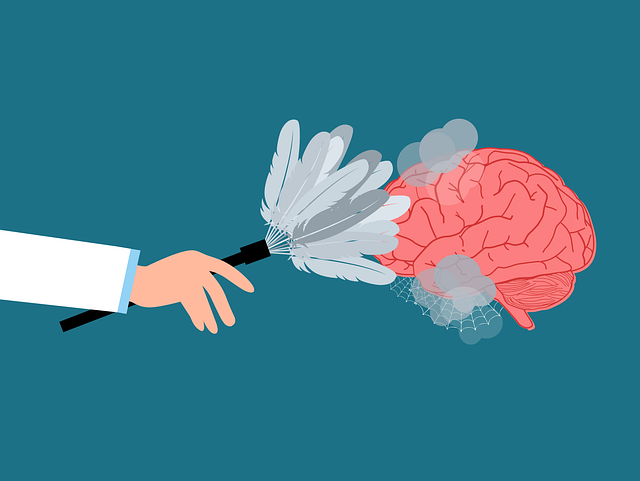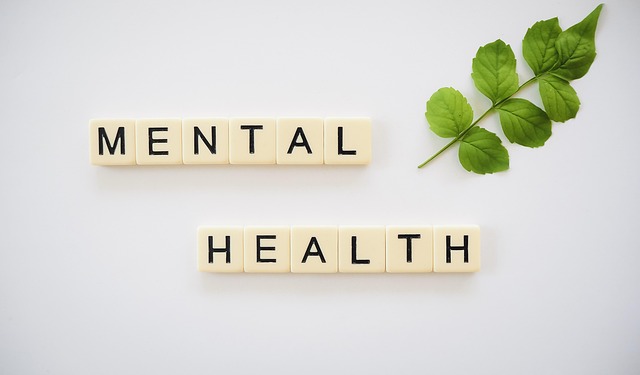Mental wellness journaling provides a safe space for children abuse survivors to process trauma through free expression, fostering resilience and healing. Techniques like mindfulness meditation and tailored podcasts enhance the therapeutic effect. Risk assessment is vital for professional guidance. Expressive writing releases repressed emotions, improves self-awareness, and offers control over mental health. A nurturing environment, prepared with self-care techniques, makes journaling accessible and supportive. Journaling exercises, including emotional exploration and gratitude practices, cultivate emotional intelligence and foster resilience in trauma survivors, promoting broader mental wellness. Regular recording aids therapy, empowers individuals to persevere, and develops tailored stress management strategies for balanced living.
“Unleash the power of self-reflection through mental wellness journaling, a transformative tool for healing children abuse survivors. This comprehensive guide explores the profound benefits of expressive writing in overcoming trauma, offering a safe haven for emotional expression. Learn how to create a nurturing environment, engage in effective journaling techniques, and track progress as you embark on a journey of recovery. Discover practical prompts tailored to therapy for children abuse survivors, empowering you to reclaim your mental wellness.”
- Understanding Mental Wellness Journaling for Children Abuse Survivors
- Benefits of Expressive Writing in Overcoming Trauma
- Creating a Safe Space: Preparing Your Journaling Environment
- Effective Techniques and Prompts for Journaling Exercises
- Tracking Progress, Celebrating Milestones: The Healing Journey
Understanding Mental Wellness Journaling for Children Abuse Survivors

Mental wellness journaling can be a powerful tool for children abuse survivors, offering a safe and private space to process emotions and experiences. Unlike traditional therapy sessions, which might feel structured or clinical, journaling allows individuals to express themselves freely through words, drawings, or both. This non-threatening approach can help survivors develop coping mechanisms, enhance self-awareness, and build resilience. By encouraging introspection, mental wellness journaling fosters a sense of control and ownership over one’s emotional well-being, which is especially crucial for those who have experienced trauma.
Children abuse survivors often struggle with trust issues and may resist direct conversations about their experiences. Journaling provides an alternative route to healing by enabling them to confront and make sense of their feelings indirectly. Through consistent practice, they can learn to recognize triggers, identify healthy coping strategies, and gradually process complex emotions like anger, fear, or shame. Moreover, mindfulness meditation techniques incorporated into journaling practices have been shown to reduce stress and anxiety, promoting overall mental wellness. Incorporating mental wellness podcasts series production in therapy for children abuse survivors can further enhance these benefits by providing engaging, accessible resources tailored to their unique needs. Risk assessment remains essential for mental health professionals facilitating such exercises to ensure the safety and well-being of every participant.
Benefits of Expressive Writing in Overcoming Trauma

Expressive writing has emerged as a powerful tool for individuals, especially those who have experienced trauma, such as child abuse survivors. This simple yet profound practice involves putting thoughts and feelings into words, often in a non-judgmental and private space like a journal. Research suggests that expressive writing can significantly enhance emotional well-being promotion techniques by helping to process and make sense of traumatic memories. By writing about their experiences, survivors can gain a deeper understanding of their emotions, identify patterns, and work towards healing.
This form of self-expression allows for the release of repressed feelings, which is crucial in trauma therapy. It provides an avenue for individuals to reconnect with themselves, offering a sense of agency and control over their mental health awareness. Moreover, regular expressive writing can serve as effective stress reduction methods, enabling survivors to manage anxiety and triggers associated with their traumatic pasts.
Creating a Safe Space: Preparing Your Journaling Environment

Creating a safe space is a vital step in initiating a mental wellness journaling practice, especially for individuals who have experienced trauma or abuse, such as children’s abuse survivors. This involves preparing an environment that feels nurturing, private, and free from judgment. A dedicated journaling area, whether it’s a quiet corner of your home or a peaceful spot outdoors, can provide the sanctuary needed to explore thoughts and emotions honestly.
Consider incorporating elements that promote comfort and security in this space. Soft lighting, soothing decorations, and familiar items can help trigger feelings of calmness. For survivors of abuse, establishing this safe haven might also involve using self-care techniques, like keeping a warm blanket nearby or having a favorite book to read before beginning, as part of their routine. This preparation allows for a more accessible and supportive setting, enhancing the therapeutic benefits of journaling and potentially offering valuable tools in navigating trauma recovery through enhanced communication strategies and self-care routine development for better mental health, as encouraged by healthcare provider cultural competency training.
Effective Techniques and Prompts for Journaling Exercises

Effective techniques and prompts for journaling exercises can significantly enhance mental wellness and coping skills development in children who have experienced abuse or trauma. One powerful approach is to encourage survivors to reflect on their emotions by writing about specific events or situations that evoke strong feelings. This practice, known as emotional exploration, helps in cultivating emotional intelligence by identifying and labeling emotions accurately. For instance, prompts could include describing a day when they felt happy, sad, angry, or scared, and what triggered these feelings.
Additionally, incorporating gratitude exercises into journaling routines can be transformative. Survivors can write about things they appreciate in their lives, whether it’s a supportive friend, a beautiful sunset, or the taste of their favorite food. This simple act of acknowledging positive aspects fosters resilience and shifts focus from trauma to healing. Such prompts not only aid in therapy for children abuse survivors but also promote mental wellness and emotional well-being on a daily basis.
Tracking Progress, Celebrating Milestones: The Healing Journey

Tracking progress through journaling is a powerful tool for healing. By regularly recording thoughts, feelings, and experiences, individuals can gain valuable insights into their mental wellness journey. This practice allows one to identify patterns, triggers, and sources of stress, fostering self-awareness and empowering them to make informed decisions about their well-being. Moreover, celebrating milestones along the way is essential for maintaining motivation and building resilience. Every small step forward, no matter how seemingly insignificant, is a testament to growth and recovery, reinforcing positive thinking and encouraging perseverance in therapy for children abuse survivors.
This process also facilitates the development of effective stress management strategies, which are crucial components of mental wellness coaching programs. By documenting techniques that work and those that don’t, individuals can tailor their approach to suit their unique needs. This iterative process not only enhances self-care practices but also prepares one for future challenges, ensuring a more balanced and fulfilling life.
Mental wellness journaling can be a powerful tool for children abuse survivors seeking therapy. By creating a safe space and employing effective techniques, individuals can tap into their emotions, process trauma, and experience significant personal growth. The benefits of expressive writing, as highlighted in this article, offer a promising path to healing. Through dedicated journaling exercises and tracking progress, survivors can embark on a transformative journey towards mental wellness, ultimately fostering resilience and a deeper sense of self-care.














